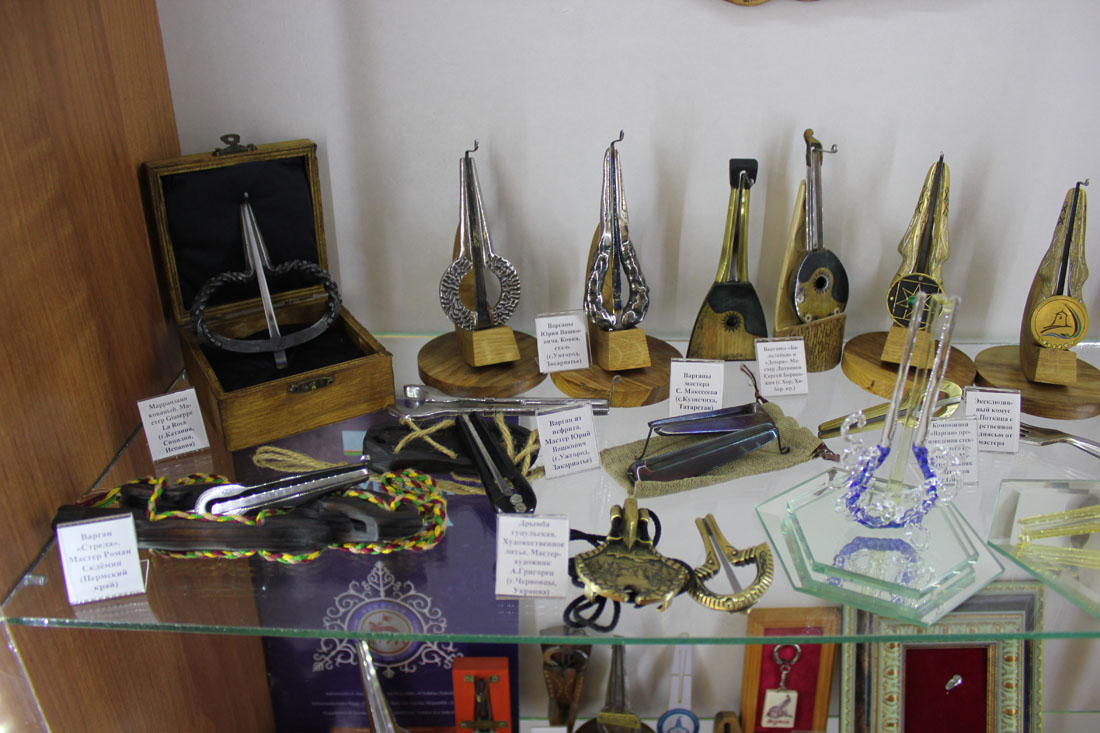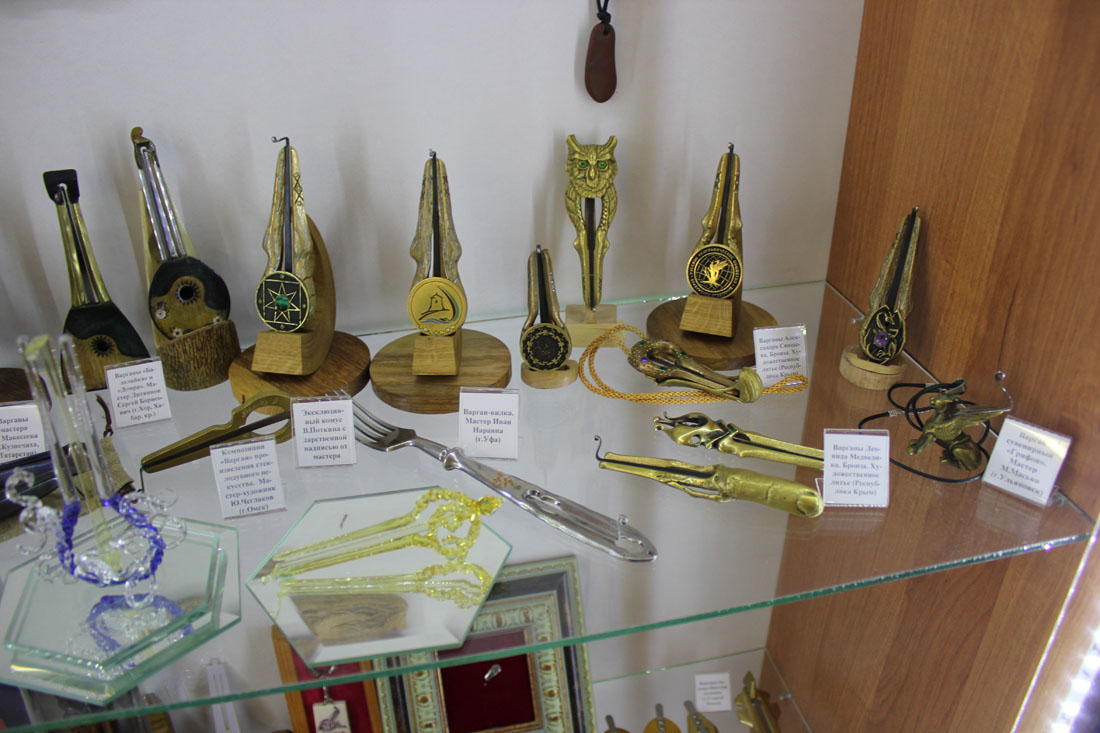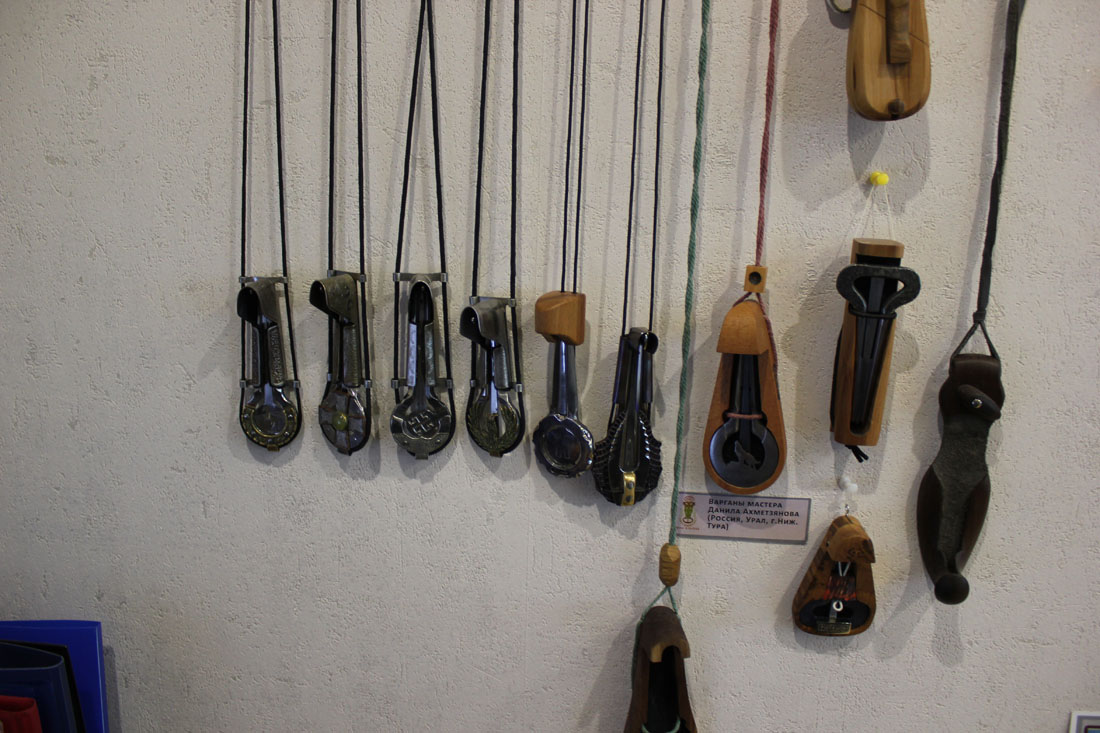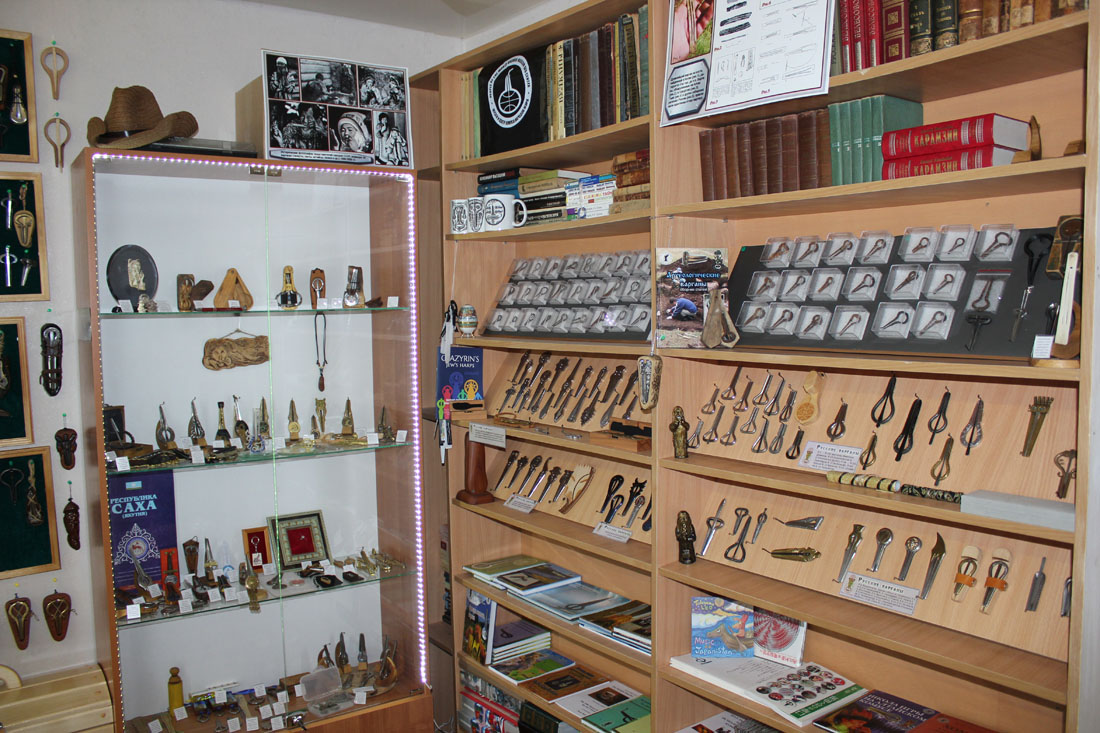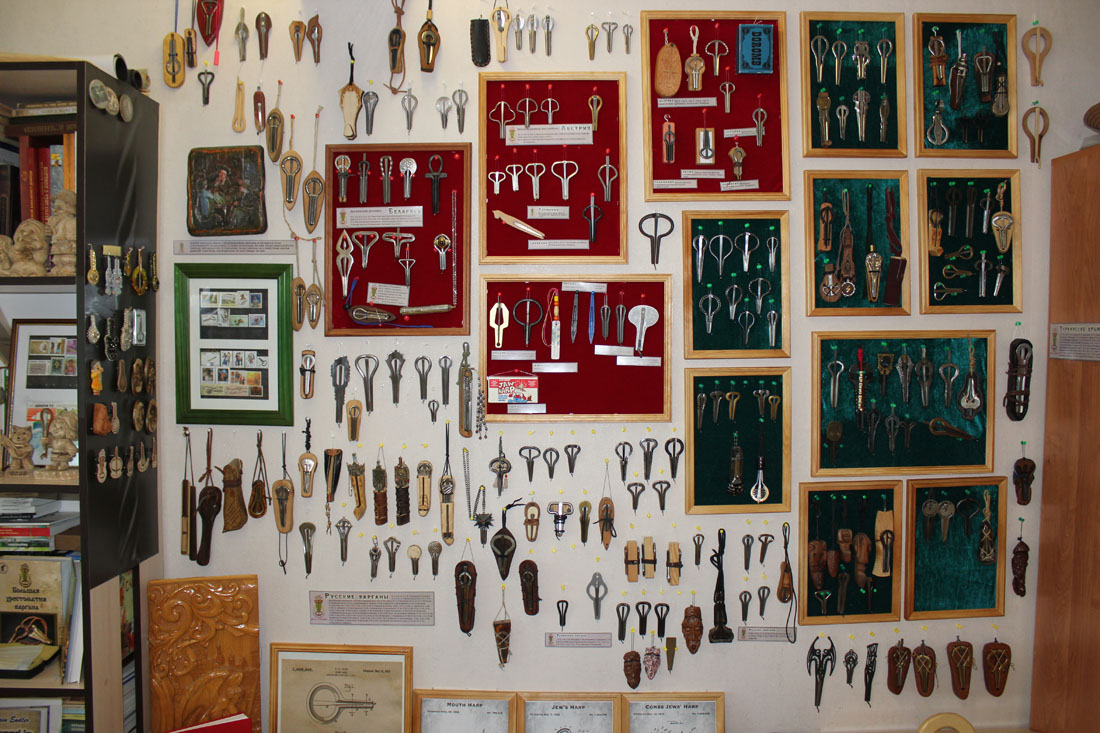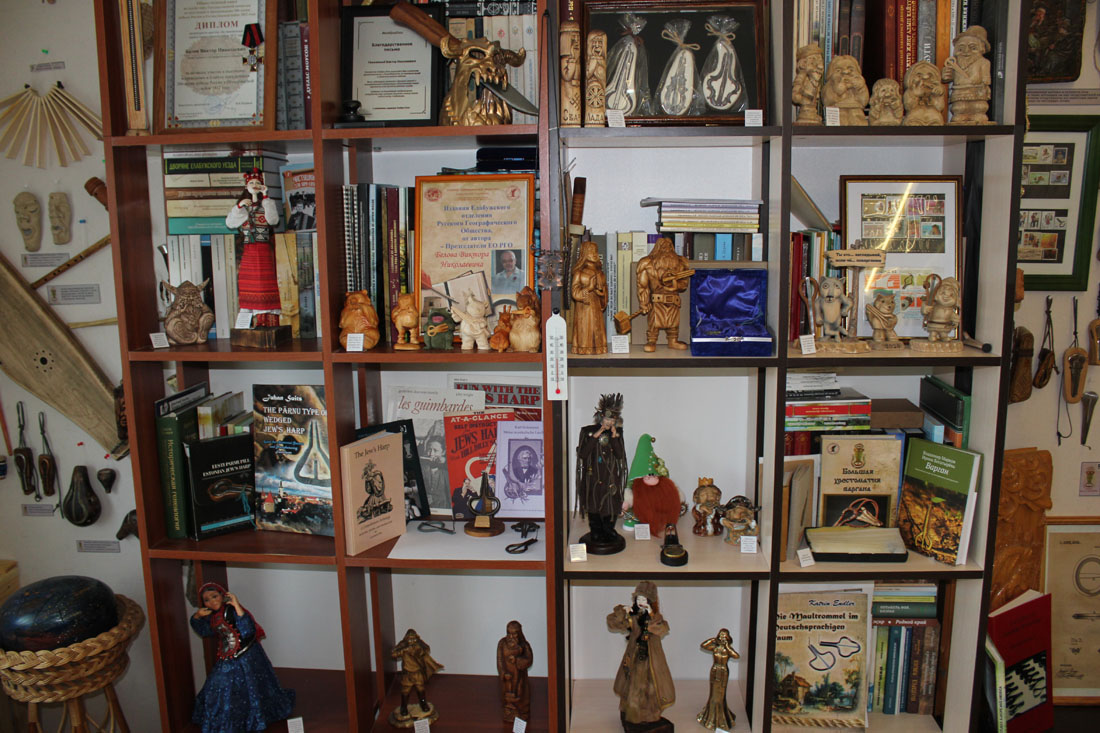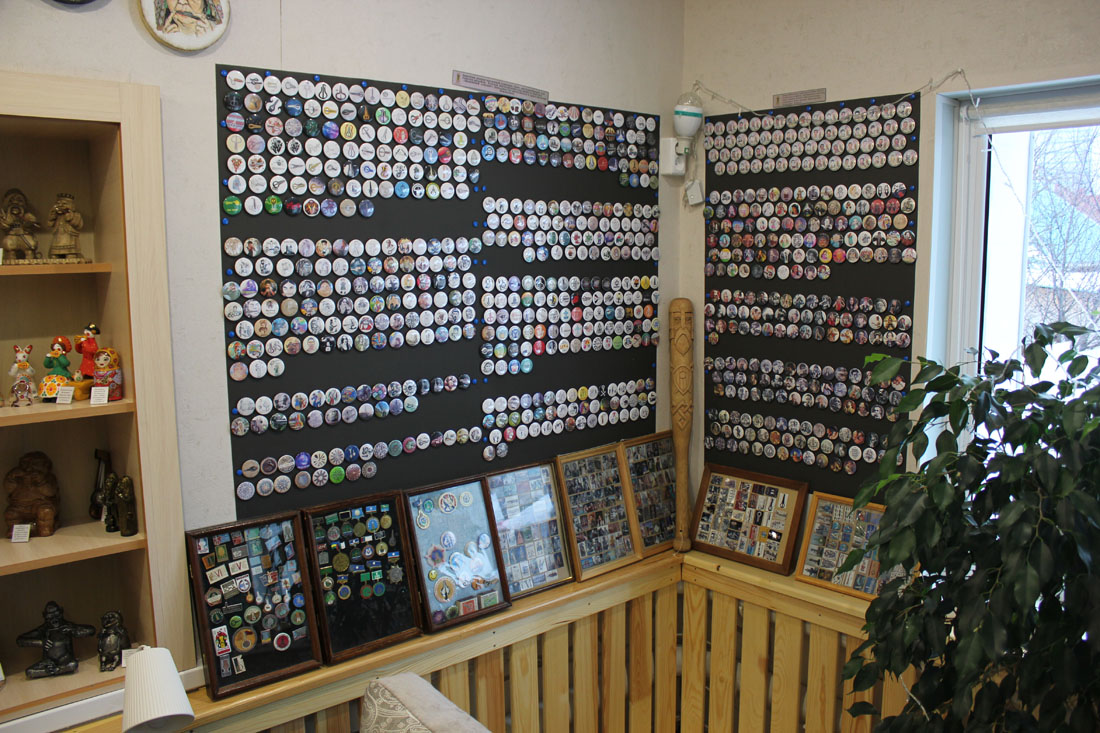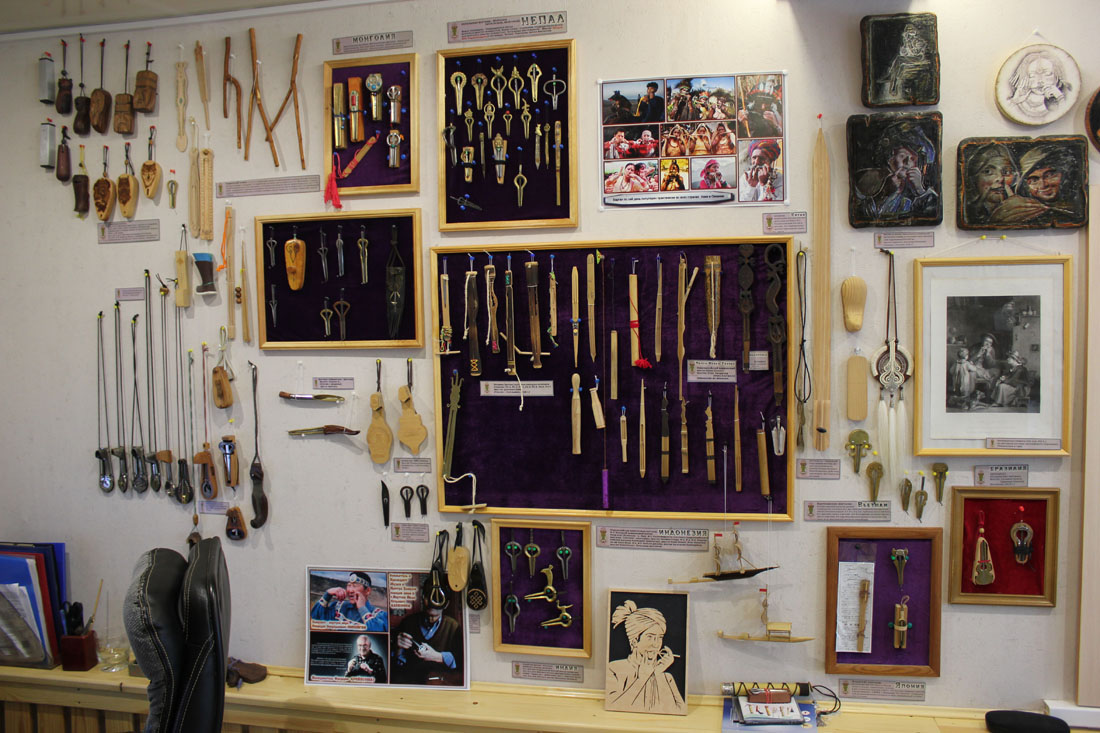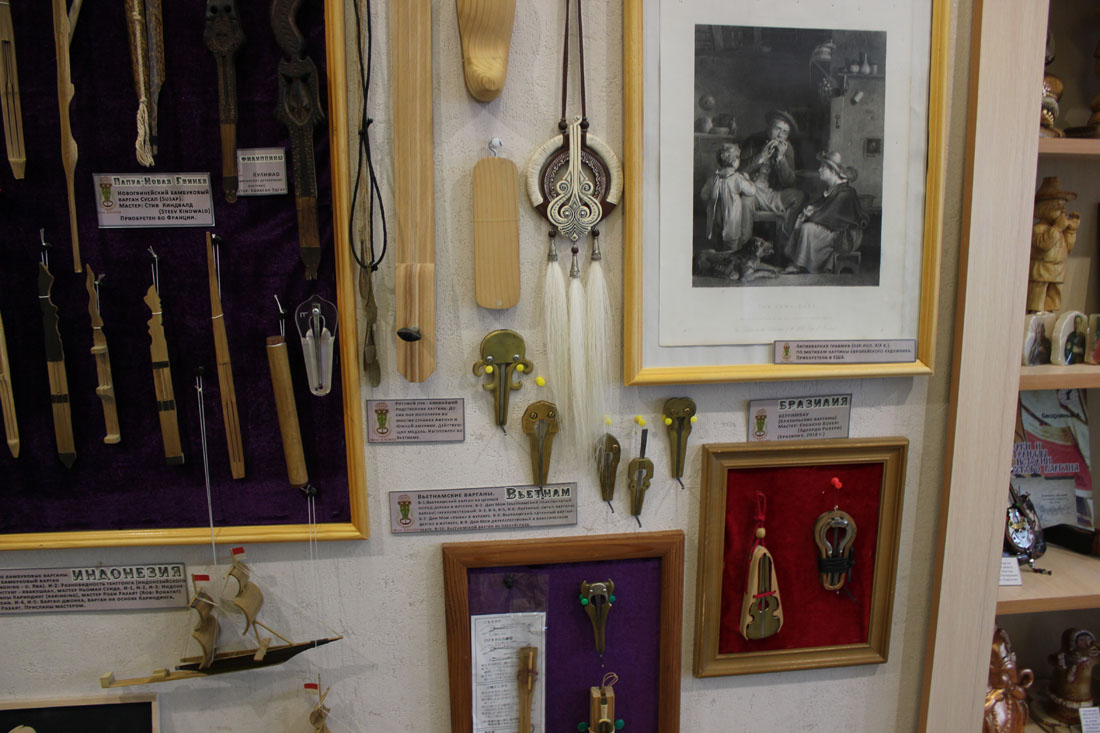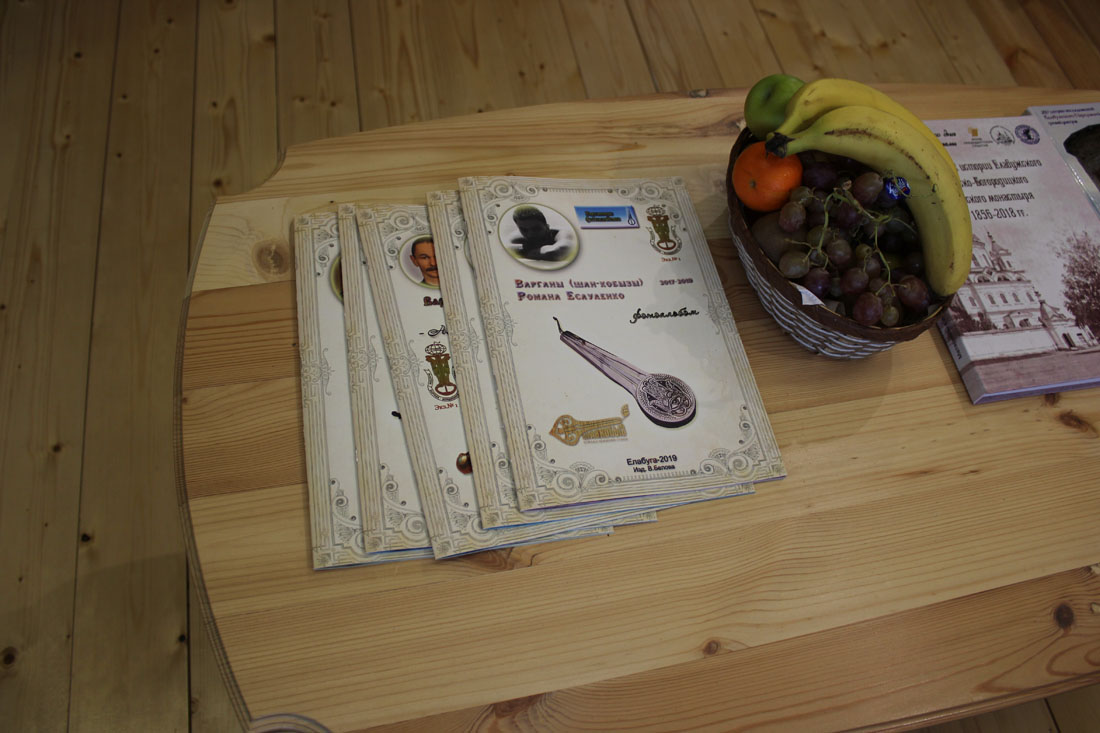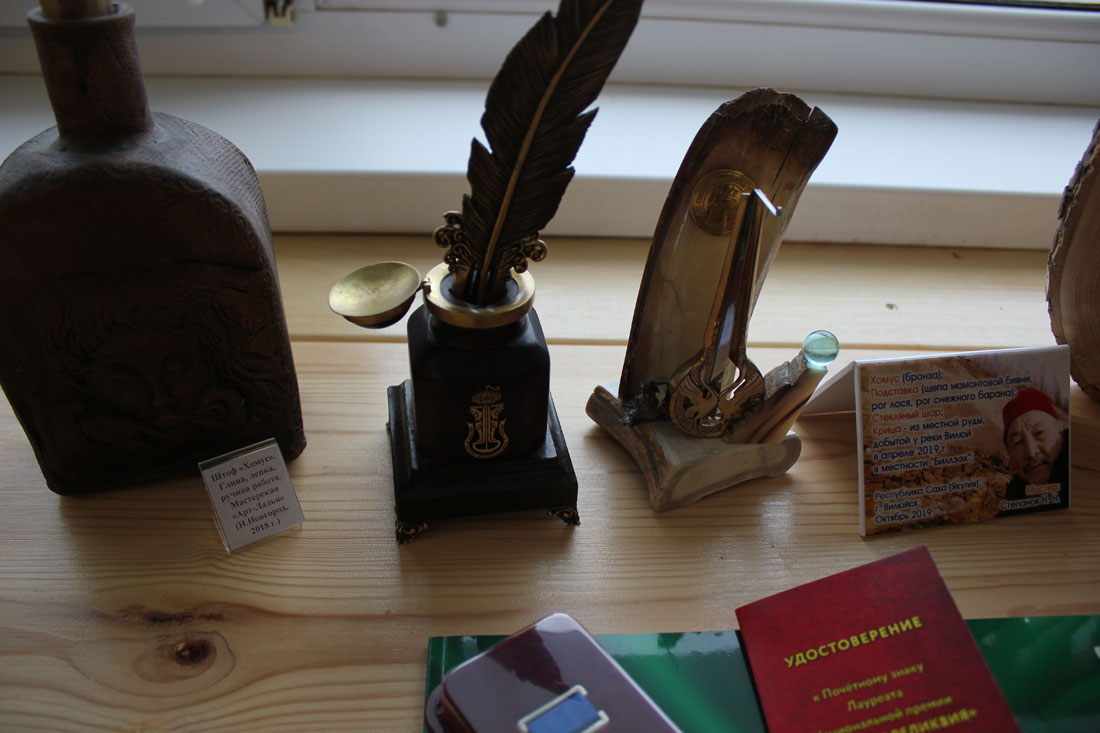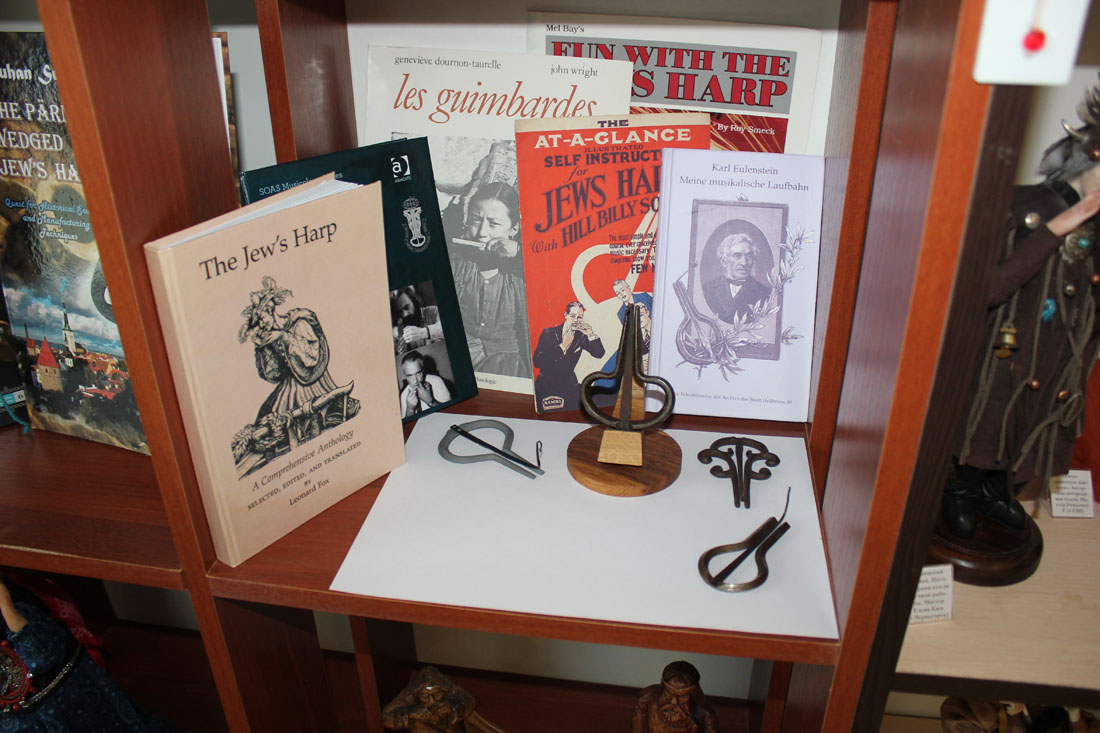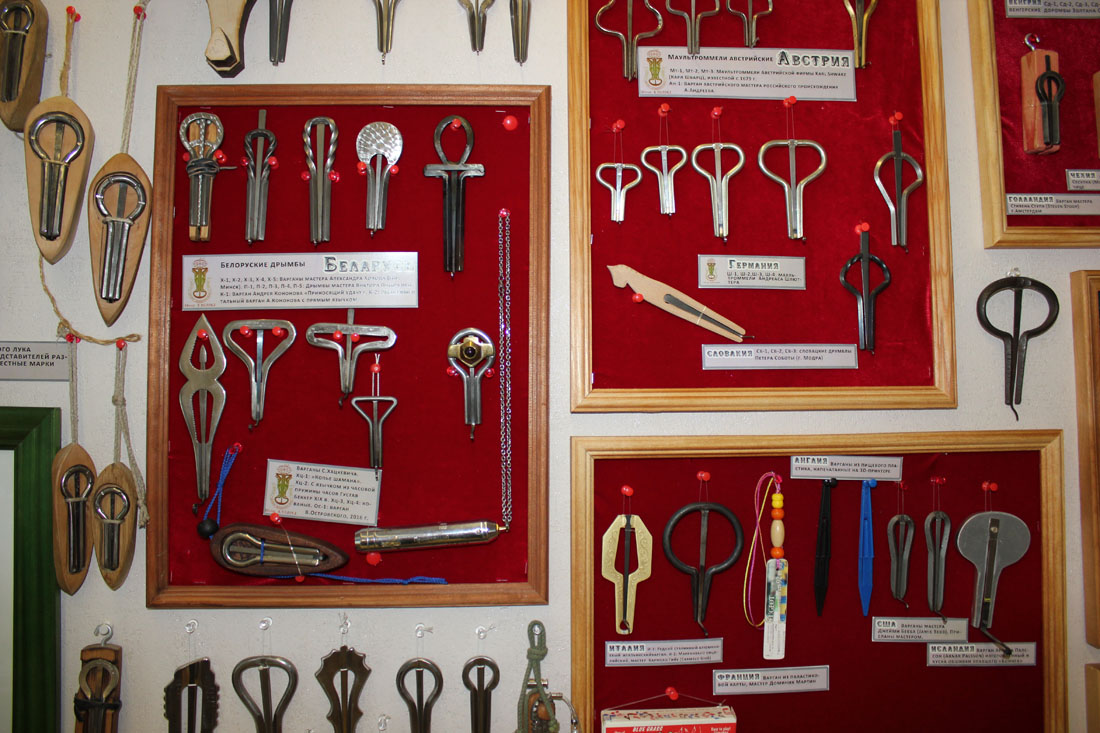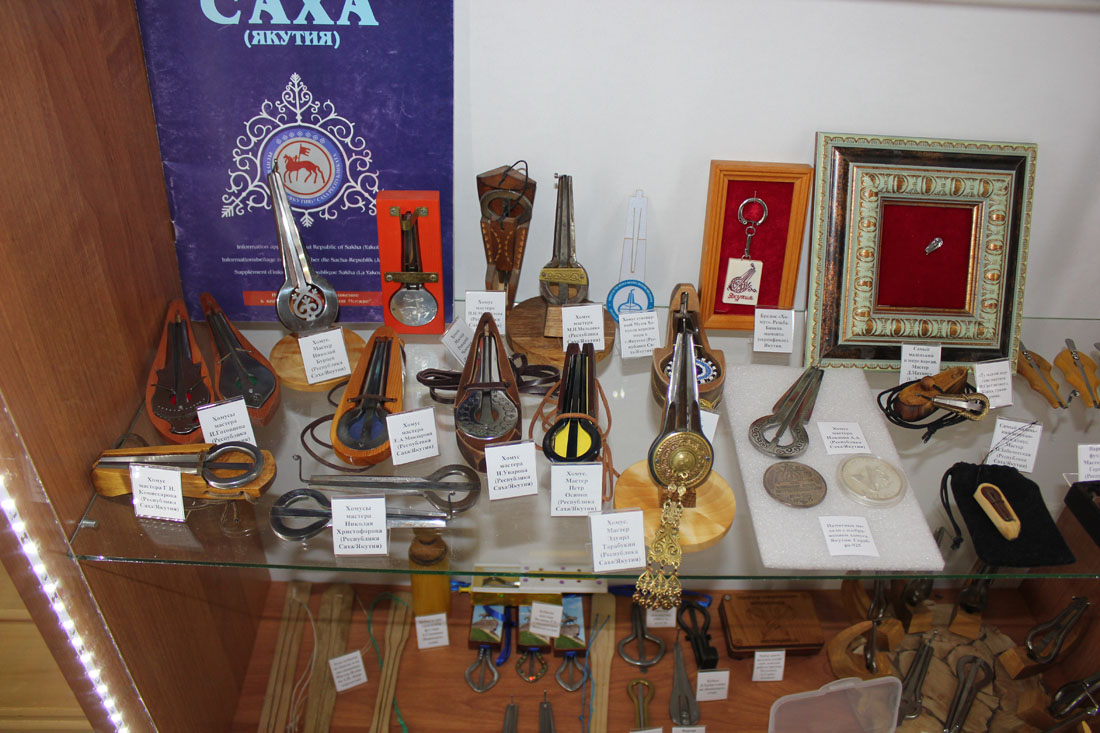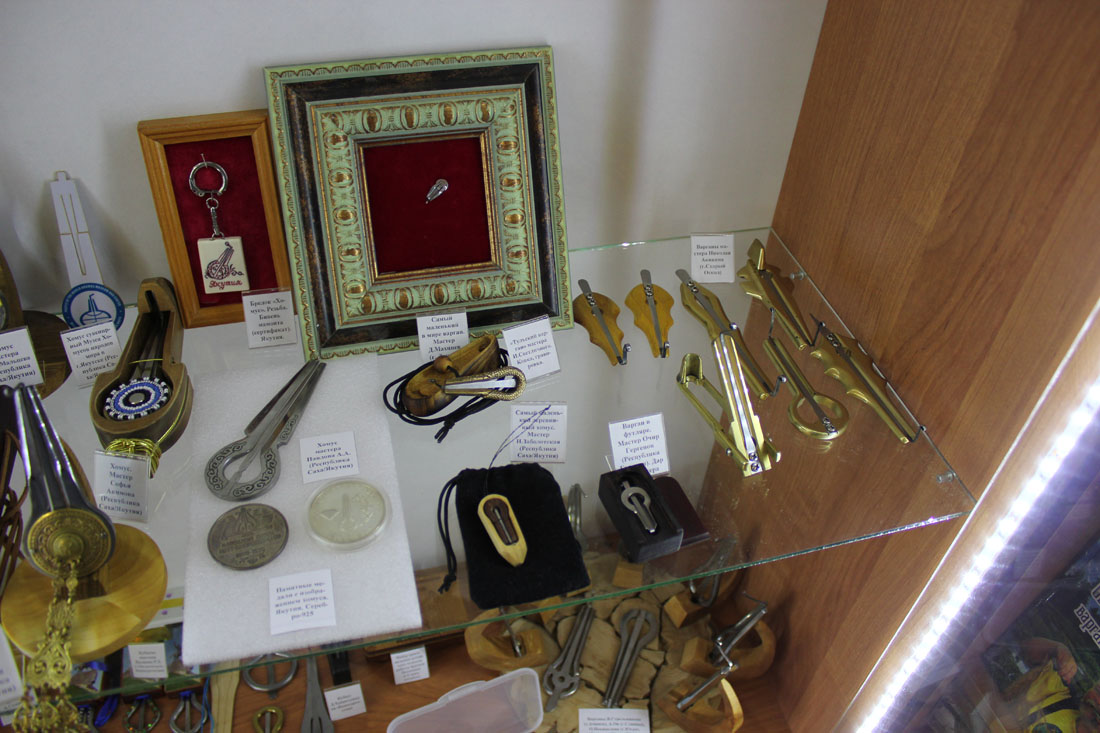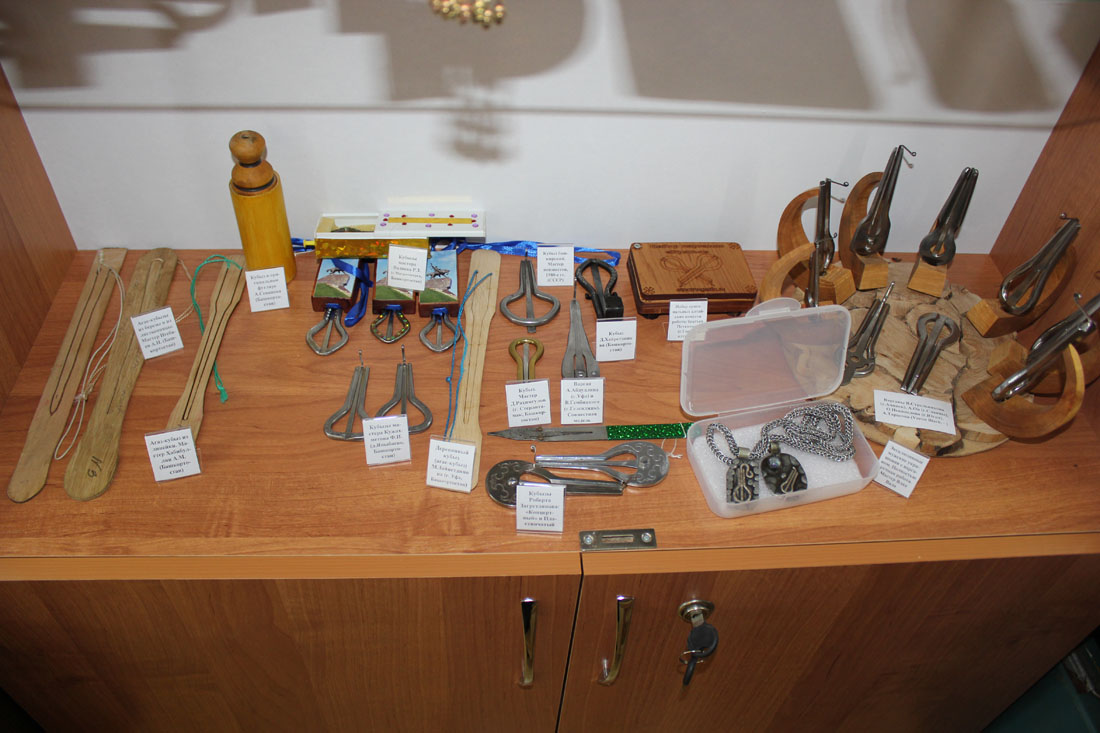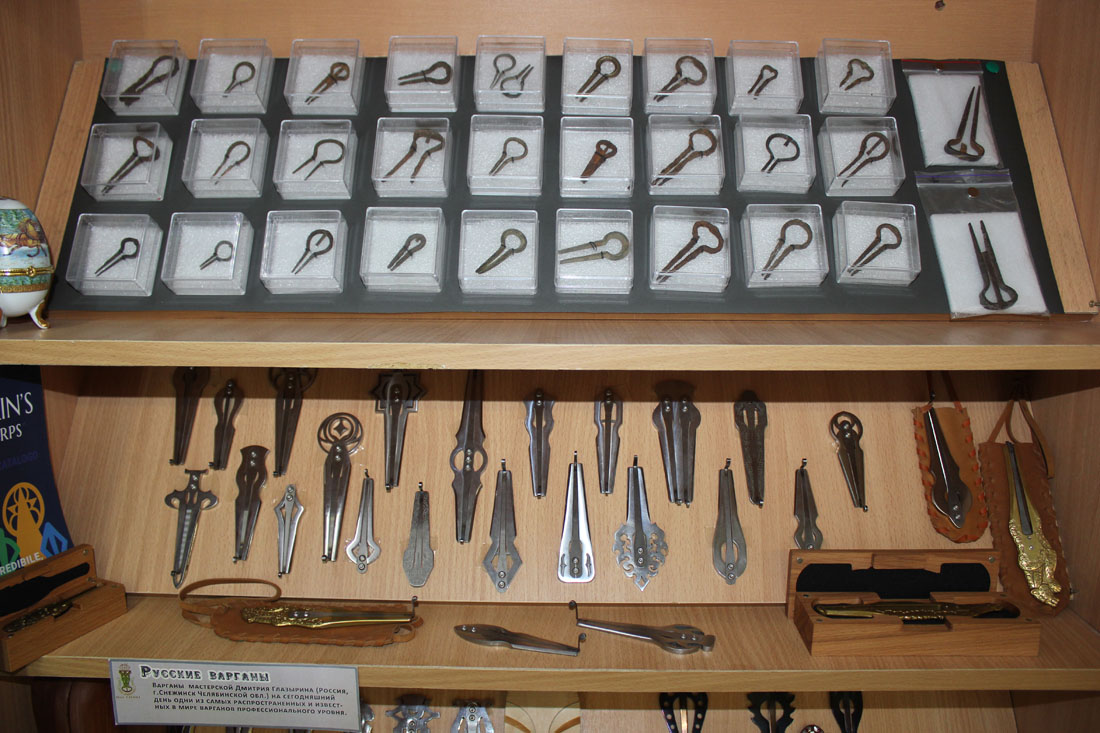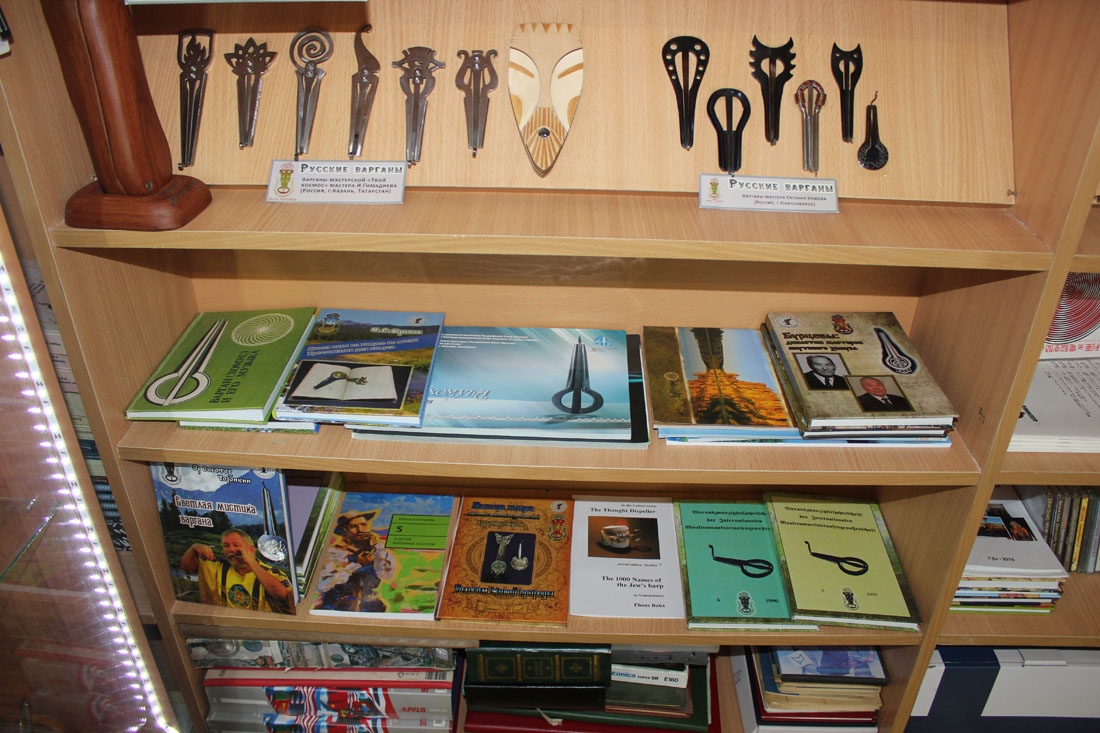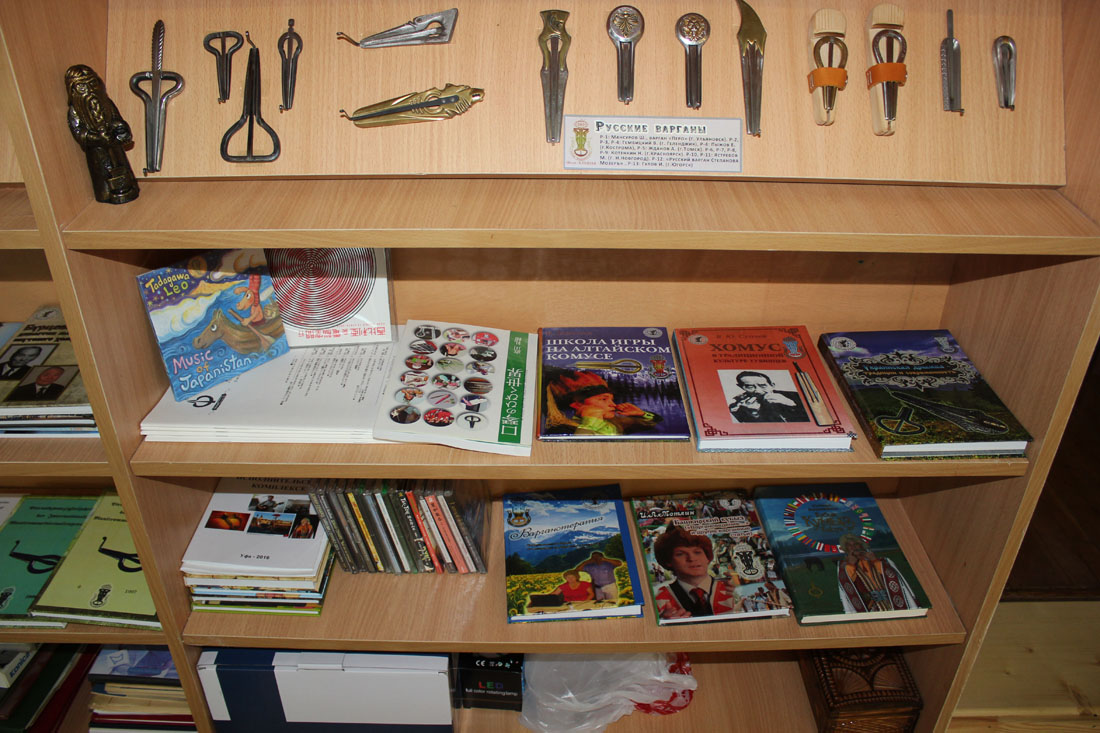V. Belov-Shchus Museum of Jaw Harp, Jaw Harp Art and Family History in Yelabuga
Tatarstan
Contact information
Operating hours
by prior arrangement
Ticket price
Negotiable. No fixed price.
Founder, owner, and director of the museum
Viktor Nikolaevich Belov-Shchus
Founded
2016
The museum’s collection consists of two main parts – the jaw harp collection itself, and the part presenting unique examples of visualization of family history.
I. The jaw harp part of the collection and the museum is, in turn, made up of two main parts, namely, harps and the exhibits related to harps in one way or another, and an additional part, containing other ethnic musical instruments that can be played together with the jaw harp.
A) Harps. The jaw harp collection, presented in the museum, is the world’s largest private collection of jaw harps, which is confirmed by an officially registered record in the INTERRECORD International Record Registration Agency: https://www.interrecord.ru/krupnejshaja-kollekcija-varganov/
This collection is second in number only to the jaw harp collection of a state museum — the People of the World Khomus Museum and Center, operating since 1991, which has about twice as much jaw harps as our museum. There are no such collections in other public or private museums anywhere in the world.
In total, the museum’s collection features more than 900 jaw harps from about 45 countries and peoples. The exhibits are organized chronologically and cover the period from the 2nd century AD to the present day. The vast majority of harps and cases (about 98%) are handmade. The catalog, compiled in 2022, contains a detailed scientific description of all the harps (at the time of drafting), including the time, place and makers names.
B) The harp-related part of the collection is even more unique, because some of its clusters are significantly larger even than the similar parts of the exhibition in the Yakutsk State museum. This part consists of the following sections:
— jaw harp in objects of decorative and applied arts and household items (various handmade objects made in different techniques and of different materials decorated with the image of a jaw harp);
— harp on CDs and records – a large collection of harp music of various styles, trends and peoples;
— jaw harp in philately (almost all stamps with the image of a jaw harp in the world ) and philumenia (match labels with the image of a jaw harp);
— jaw harp in memomagnetics (magnets depicting a jaw harp)
— jaw harp in phaleristics, the one-of-a-kind and the world’s largest (among similar collections) collection of badges depicting jaw harps;
— the harp library, which is also the largest in the world and includes literature about the harp in Russian, Yakut, Bashkir, English, Italian, German, Japanese, French and Estonian.
C) The museum also features several dozen other musical instruments that can play together with a harp – Tibetan singing bowls, tambourines, djembe, didgeridoo, panpipes, kalyuka, treshchotka, gusli, whistles, gong, etc.
II. The part of the museum featuring examples of visualization of family history reflects the main work of the museum’s creator and founder, who is a genealogist and writer, compiler and editor of books on family history. In this section of the museum, unique items made based on the owner’s research are on display: A large 2.3 by 1.6 meters genealogical scheme, featuring about a hundred generations of the founder’s family covering 2,500 years; unique handmade leather bound genealogical books looking like antique folios (larger than A3) containing the description of the genealogical research and the family history itself; printed commemorative photo books dedicated to the deceased members of the family, specialized furniture for storing and reading family history books and much more. This part always generates great interest among visitors and inspires them to learn more about their ancestors. Many people who previously didn’t care about family history, after the visit begin to take interest in genealogy and become excited about their own roots and the life of their ancestors.
